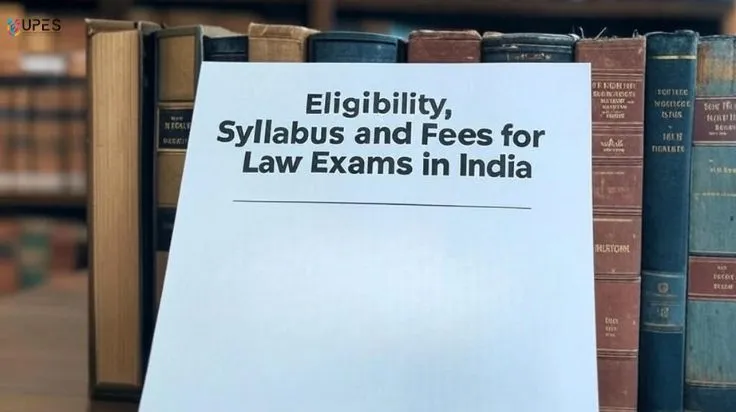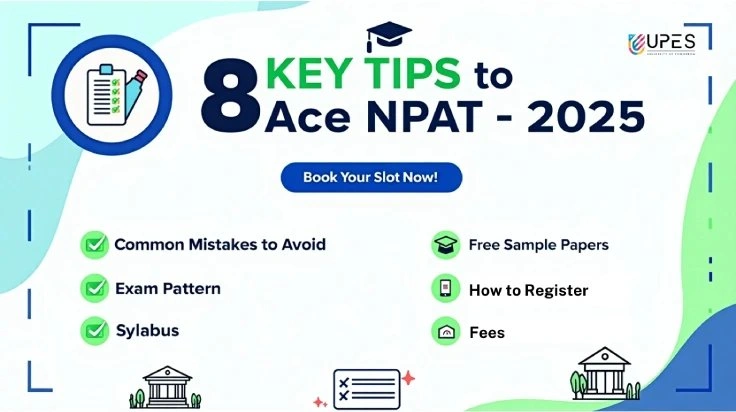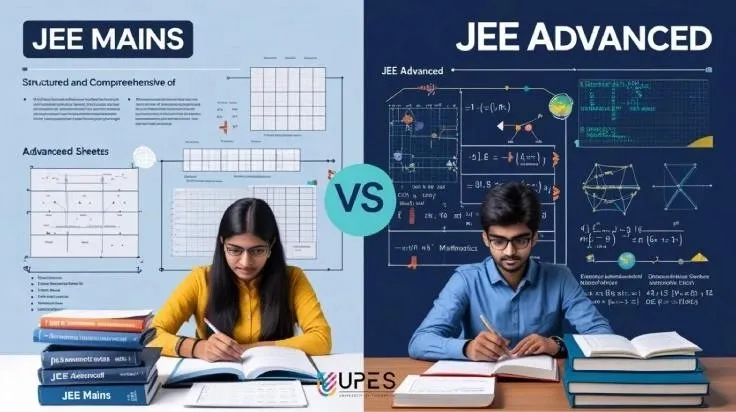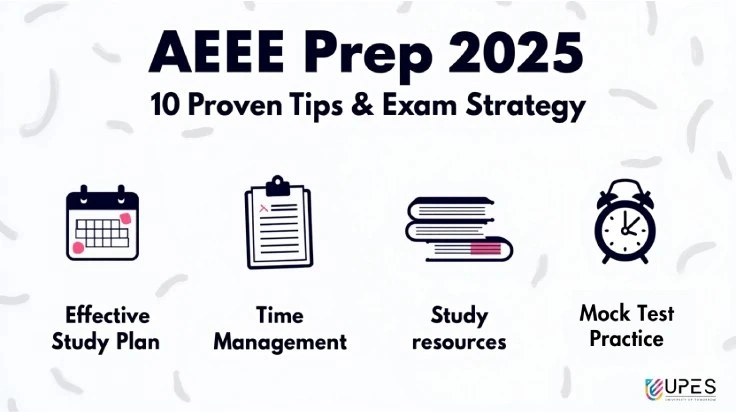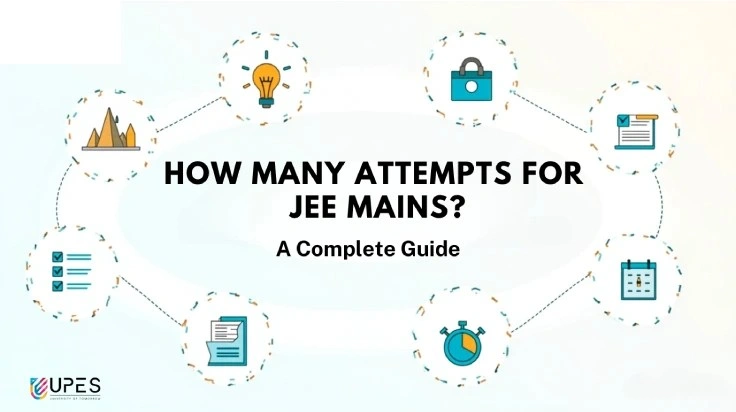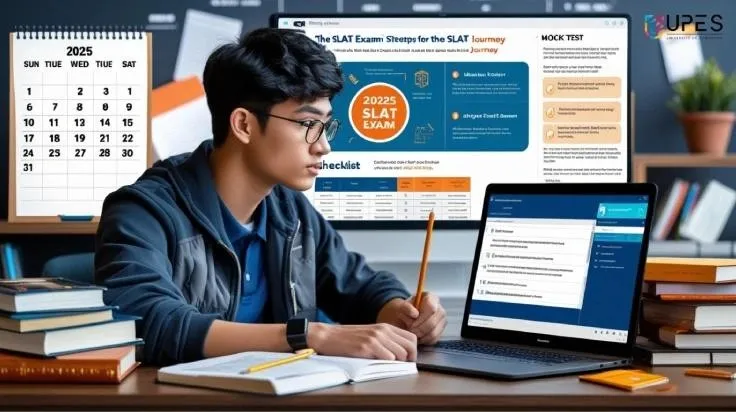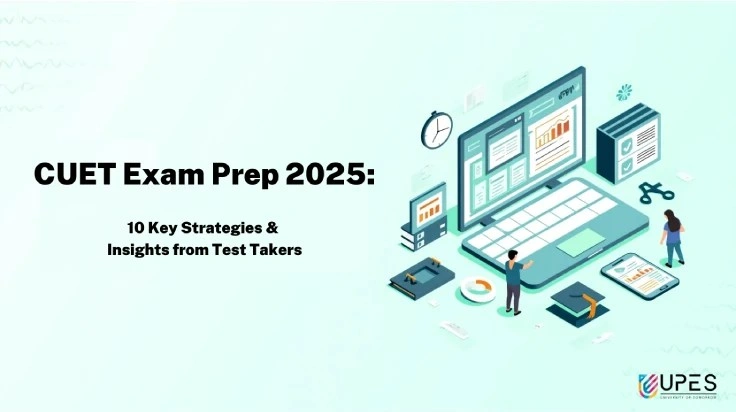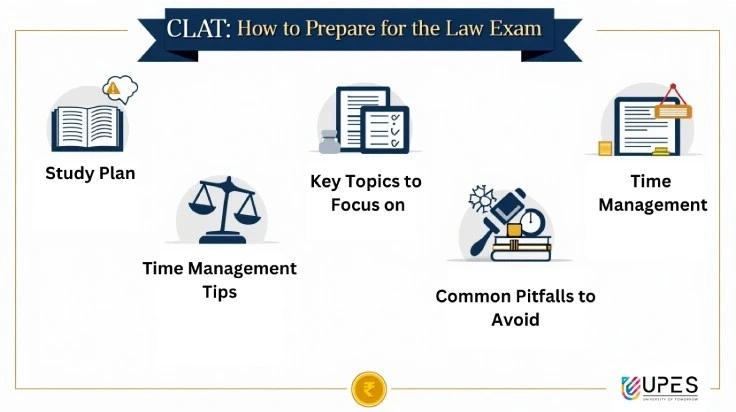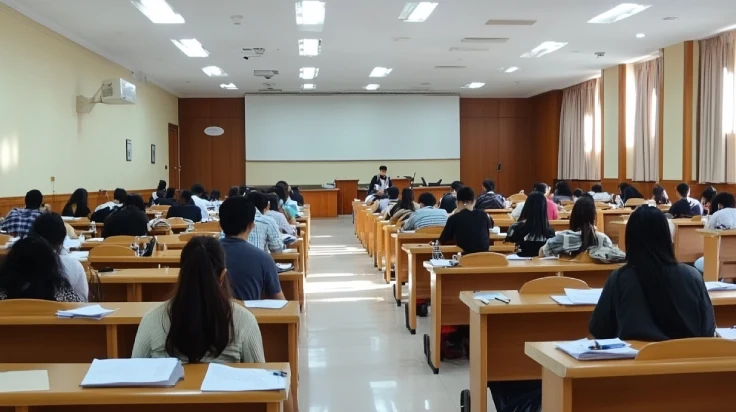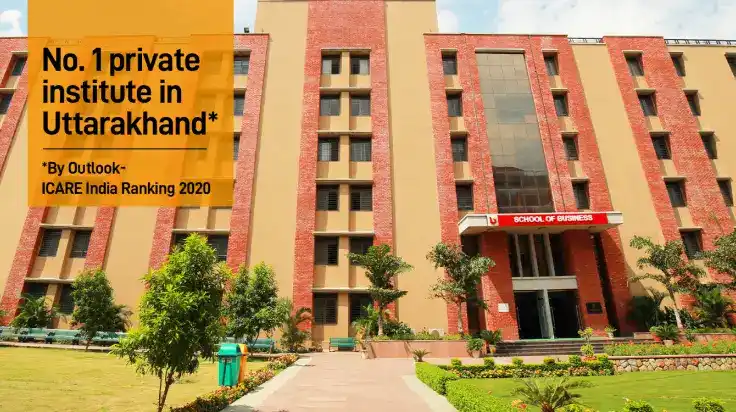LSAT for Law Students- Dates, Syllabus, Exam Pattern, Fees, Mock Tests
- UPES Editorial Team
- Published 05/02/2025
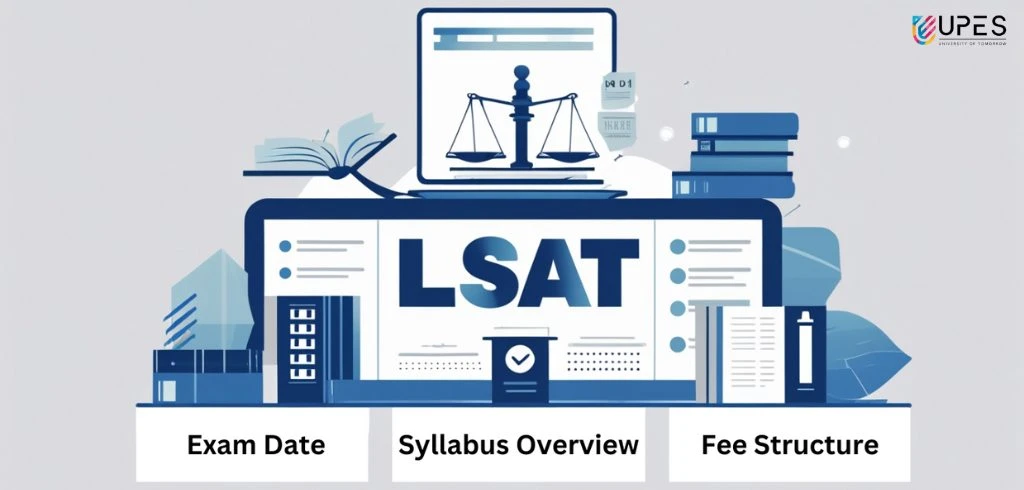
Table of Contents:
Are you planning to study in any prestigious law schools of US, Canada and other major countries? Gear yourself up for the LSAT India 2025! A standardized test called the Law School Admission Test (LSAT) is necessary for admission to law schools in the United States, Canada, and an increasing number of other nations. It is a key component of law school admissions and a means of assessing an applicant's linguistic and thinking skills. The LSAT is a test of critical thinking abilities that are developed over a lifetime, not memorization. Since the LSAT does not discriminate against students based on their field of study, its design aims to be inclusive and democratic for all test-takers.
Read the blog to get a complete understanding of LSAT dates, syllabus, exam pattern, fee, mock tests, and more.
LSAT Exam Eligibility
When thinking of taking the LSAT Exam, keep a few important information about eligibility in your mind. They are listed below:
- If you are planning on pursuing graduation in LAW, then you must have at least 45% in 10+2.
- For Postgraduation, you must have at least 45% in Graduation.
- You must have a Passport as it serves as the proof of identity.
- There is NO age-limit to taking LSAT.
- Have a look at rules of your Target law schools for eligibility. Some have unique, individual rules. Make sure to not miss them.
LSAT Exam Pattern
The LSAT is a standardized test consisting of multiple-choice questions, designed to evaluate skills essential for success in law school. The exam spans 3 hours and 30 minutes and includes five timed sections, each lasting 35 minutes. Of these, four sections contribute to the total score, while one is an unscored experimental section used to test new questions or formats.
However, test-takers cannot identify which section is the experimental one. Additionally, there is an unscored writing section, completed at the end of the test, which is sent to the schools to which the candidate applies.
Scored Sections:
Reading Comprehension (1 section):
- Includes 4 reading passages (3 longer and 1 shorter) with a total of 27 questions.
- Assesses the ability to:
- Understand the main ideas of a complex text.
- Locate and interpret relevant details.
- Draw logical inferences.
- Analyze lengthy and intricate written materials.
Analytical Reasoning (1 section):
- Contains 25 questions.
- Tests the ability to:
- Analyze the impact of specific constraints on outcomes.
- Understand relationships between ideas or elements.
- Apply reasoning to uncertain or ambiguous scenarios.
- Develop conclusions based on provided conditions.
Logical Reasoning (2 sections):
- Each section comprises 25 questions, totalling 50 questions across both sections.
- Evaluates the ability to:
- Understand the central argument of a passage.
- Identify relevant information.
- Assess reasoning and logic.
- Apply abstract reasoning to draw conclusions.
Writing Section:
- This unscored section measures the ability to:
- Construct a cohesive and well-supported argument based on provided details.
- Use relevant examples or analogies to support a thesis.
- Write clearly and effectively in standard English.
The LSAT is designed to assess critical thinking, logical reasoning, and comprehension skills that are fundamental to success in legal studies and the practice of law.
LSAT Exam Syllabus
The LSAT India syllabus is designed to assess critical reasoning, analytical thinking, and reading comprehension skills essential for success in legal studies. It consists of the following four sections:
1. Analytical Reasoning (AR):
This section evaluates your ability to analyze relationships and solve problems involving people, objects, and events. Key topics include:
- Linear Ordering: Understanding sequences and arrangements in a straight line.
- Sequencing: Arranging elements in a specific order based on given rules.
- Grouping: Categorizing items based on conditions.
- Arrangements: Structuring elements in a logical pattern.
- Logical Puzzles: Solving problems with deductive reasoning.
2. Logical Reasoning (LR):
This section tests your ability to evaluate, strengthen, or challenge arguments. Key topics include:
- Inference: Drawing conclusions from given information.
- Assumptions: Identifying unstated premises in arguments.
- Strengthening and Weakening Arguments: Evaluating factors that improve or undermine the logic of a statement.
- Fallacies: Recognizing flawed reasoning.
3. Reading Comprehension (RC):
This section measures your ability to understand and analyze complex written passages. Key focus areas include:
- Main Idea: Identifying the central theme or purpose.
- Supporting Details: Locating specific information that reinforces the main idea.
- Inference: Deriving logical conclusions from the text.
- Author’s Purpose: Understanding why the author wrote the passage.
- Tone: Recognizing the author’s attitude or perspective.
4. Writing Sample (Optional):
This 35-minute essay assesses your ability to construct a clear, concise, and persuasive argument. The topic is randomly chosen from a predefined pool, and while this section is not scored, it is sent to law schools as part of your application.
Preparation Resources:
The detailed syllabus is available on the LSAC website, along with preparation materials. Numerous LSAT preparation books and courses also provide comprehensive coverage of these topics to help candidates excel in the exam.
When is LSAT Exam 2025?
Preparing for LSAT requires dedication, accuracy, and patience. Knowing when the exam is to be conducted, you can create an exam preparation timetable accordingly. Read below:
| 3rd Week of January 2025 (January Session) |
| 3rd Week of May 2025 (June Session) |
When to Apply for LSAT 2025?
The Registration Deadline for January session is 12/3/2024. The Registration Deadline is now passed. Those who filled the form within the deadline window, can now appear for the January session.
LSAT India Exam Centres
| Bengaluru | Hyderabad | Gurugram | Pune |
How much does LSAT cost in India?
| LSAT India 2025 Registration Fee (January) | INR 3,999 |
| LSAT India 2025 Registration Fee (May) | INR 3,999 |
| LSAT India 2025 Registration Fee (for January and May) | INR 7,998 |
LSAT Exam Books and Preparation
Here’s a list of highly recommended books and resources for LSAT India preparation:
1. Comprehensive Guides
- The LSAT Trainer by Mike Kim:
- Comprehensive coverage of all question types.
- Effective strategies for tackling different sections.
2. Official Practice Materials
- 10 Actual, Official LSAT PrepTests by LSAC:
- Real past LSAT exams for practice.
- Ideal for familiarizing yourself with the test format.
3. Section-Specific Guides
- The LSAT Bible Series by David M. Killoran:
- Logic Games Bible: Detailed strategies for analytical reasoning and logical puzzles.
- Logical Reasoning Bible: In-depth explanations for logical reasoning questions.
- Reading Comprehension Bible: Techniques for mastering complex reading passages.
- LSAC Prep LSAT Strategy Guides:
- Subject-specific guides covering each section of the exam.
4. LSAT India-Specific Resources
- Books and materials tailored specifically for LSAT India format.
- Practice tests reflecting LSAT India’s question style.
5. Key Tips for Preparation
- Ensure the books are recent editions to stay updated with the latest LSAT format.
- Incorporate practice tests and official LSAT India prep materials into your study plan.
- These resources are beneficial for preparing for all LSAT versions, including LSAT India.
This structured approach ensures comprehensive preparation for every aspect of the LSAT India exam.
Pursue LAW in India:
For those of you who have missed their registration for LSAT and chances of studying in LSAT colleges, and are now worried for their future, you still have a silver lining left! You can choose to pursue LAW, either at the graduate or the postgraduate level from UPES, Dehradun. The UPES School of Law is dedicated to excellence in legal education, emphasizing results-oriented learning. Through the integration of cutting-edge educational technologies, the school provides a flexible, skill-focused, and cooperative learning environment. This innovative approach prepares students with the expertise and capabilities required to succeed in the rapidly evolving field of law.
| BA LL.B. | BBA LL.B. | LL.B. | LL.M. |
Global Opportunities:
- Opportunities for master's degree advancement at ULaw, Maurer School of Law, Nottingham Trent University, and Moritz School of Law
- ULaw offers a tuition cost waiver for a semester abroad.
- The University of California, Berkeley is offering a semester abroad opportunity.
- Teaching alongside ULaw
The law programs allow students to specialize in distinct areas, each tailored to impart the expertise and knowledge essential for thriving in various legal domains. With a rigorous and well-rounded curriculum, students gain an in-depth understanding of the law and its influence on society. The highly qualified faculty fosters an engaging and enriching academic environment, enabling students to develop the critical skills needed to excel in their chosen legal specialization.
Conclusion
As you prepare for LSAT 2025, make sure you are very thorough with the syllabus, exam pattern, dates, centres, and more. Keep the resources handy and study them rigorously for a robust foundation. LSAT faces one of the highest number of applications so it’s important to study for it diligently to prepare for it. Study hard and crack it. A successful career in law awaits you!
UPES Dehradun’s School of Law is an equally fruitful and enriching legal journey you can decide to embark on. Their law program provides a unique platform for students to pursue their interests while equipping them with the tools and knowledge necessary for a successful career in law. Apply Today!
FAQs:
1. Is LSAT conducted twice a year?
Yes, LSAT is conducted twice, once in January and next in May, offering students the chance to better their score.
2. Is 3 months enough for LSAT?
You will have to rigorously dedicate 10-12 hours a week to crack the exam with only three months of preparation. If you lack the required time for preparation, you can stretch it to 6 months.
3. What is a good LSAT Score?
For the top 50 law schools, the median LSAT scores typically range from 164 to 174. For top-tier law schools, specifically the T14 schools, a competitive LSAT score falls between 171 and 174.
4. Is LSAT tougher than CLAT?
CLAT is considered the most challenging law entrance exam in India, whereas LSAT India is relatively easier but remains a demanding test. Administered by LSAC, a globally renowned organization recognized for its high standards in testing, LSAT India ensures a rigorous assessment of candidates' skills.
UPES Editorial Team
Written by the UPES Editorial Team
UPES Admission Enquiry
Subscribe to UPES Blogs
Join our community for exclusive stories, insights, and updates
By clicking the "Subscribe" button, I agree and accept the privacy policy of UPES.









